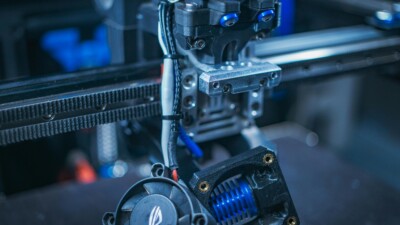This Week in Engineering explores the latest in engineering from academia, government and industry.
Episode Summary:
LG Energy is General Motors partner of choice for the firm’s broad new Ultium battery program, but the company has just announced a new joint venture with Stellantis to produce EV batteries at a yet undisclosed American location. The project is substantial in size and will supply multiple Stellantis brands. LG has a relationship with Stellantis going back to 2014 when the firm supplied batteries and control systems for the Chrysler Pacifica hybrid.
Former Boeing engineering test pilot Mark Forkner has been indicted in a Fort Worth, Texas Federal Court on multiple charges stemming from his involvement in the development of the MCAS system used in Boeing 737 Max airplanes. Prosecutors allege that Forkner deliberately concealed details of the MCAS system from FAA regulators, resulting in the exclusion of it from Boeing pilot operating manuals. Allegations claim that this omission was an important contributory factor to the crashes of two Max airplanes with the loss of all aboard. This is the first indictment of an individual in the Boeing MCAS saga.
Access all episodes of This Week in Engineering on engineering.com TV along with all of our other series.
Transcript of this week’s show:
To see any graphs, charts, graphics, images, and/or videos to which the transcript may be referring, watch the above video.
Segment 1: The shift from internal combustion engine to electric vehicles is accelerating. Auto heavyweight Stellantis has announced a joint venture with LG Energy Solution to produce battery cells and modules in the US for North American vehicle production. The facility is targeted for production start in the first quarter of 2024 with an annual production capacity of 40 GW hours.
The batteries produced at the plant are destined for Stellantis assembly plants in the US Canada and Mexico for use in battery electric vehicles and plug-in hybrids for multiple Stellantis brands. The company manufactures multiple brands worldwide, although in America, Stellantis is best known for Chrysler, RAM and Jeep nameplates.
Overall, the company expects that 40% of US sales will be electrified vehicles by 2030. Globally, EV mandates are serious issue for all manufacturers and Stellantis expects to achieve at least 260 GW hours of annual capacity by 2030. LG has an existing joint venture with General Motors to produce that company’s Ultium battery technology, so the partnership with a major competitor suggests that Stellantis may be using a different chemistry or form factor. LG was the original lithium-ion battery pack supplier for the company’s Chrysler Pacifica hybrid in 2014.
Investment in electrification by the automaker is considerable, about €30 billion through 2025 in hardware and software development. A major focus will be capital expenditure and research and development. Stellantis aims to be 30% more efficient than the industry average in these key metrics. Where will the new plant be located? Neither Stellantis nor LG Energy Solution has revealed the location, although current industry trends and state incentives suggest that it will likely be in Eastern Michigan, or south of the Mason-Dixon line.
With Ford aligned with SK Innovation and LG tied up with both GM and Stellantis, the parent of the former Fiat Chrysler Automobiles, it looks like the Detroit Three have gone all in with Korean battery partners.
Segment 2: While the Boeing 737 Max has been cleared for service by the FAA for a year, the fallout from the MCAS derived crashes of Lion Air Flight 610 and Ethiopian Airlines Flight 302 are not over yet. Mark Forkner, a former Boeing engineering test pilot on the program has been indicted by a Federal grand jury on charges of deceiving safety regulators by providing the Federal Aviation Administration with false and incomplete information about the MCAS system.
Prosecutors have charged Forkner with two counts of fraud involving aircraft parts in interstate commerce and four counts of wire fraud. If found guilty on all charges, he could be sentenced to up to 100 years in prison. The 49-year-old has entered a not guilty plea before a US Magistrate Judge in Fort Worth, Texas.
In January, Boeing agreed to pay $2.5 billion to settle corporate charges over the MCAS issue, but Forkner is the first individual to be charged in the matter. According to Federal prosecutors, Forkner withheld details of a safety relevant change to the MCAS system in 2016, which led the FAA to remove reference to it in a technical report. The allegation is the result of this omission was that the MCAS system was not described in pilot manuals, and as a result most pilots didn’t know the system existed until after the Lion Air crash.
The Boeing deal struck with the Justice Department in January 2020 will drop criminal conspiracy charges against the company within three years on completion of the agreed compensation payouts, but the indictment of Forkner and what he says during his trial, may open the door for individual prosecutions. A trial date has been set for November 15.



